New R75.20 Heightens Security with Integrated URL Filtering, SSL Inspection and Expanded Data Loss Prevention
CALGARY, AB – September 7, 2011…Check Point® Software Technologies Ltd. (Nasdaq: CHKP), the worldwide leader in securing the Internet, recently announced the availability of Check Point R75.20, the latest software release for its leading Software Blade Architecture™. R75.20 brings customers a comprehensive approach to security with:
- New URL Filtering Software Blade – This new software blade provides granular control for web surfing in real-time and uniquely integrates with Application Control for unified enforcement of all Web controls. Over 100 million websites and 240,000 Web 2.0 applications and widgets are now classified in Check Point’s cloud-based web categorization engine.
- SSL Inspection – R75.20 enables businesses to inspect SSL-encrypted traffic across all software blades, providing in-depth security analysis and data loss prevention services for applications such as Gmail, eBay and Facebook.
- Data Loss Prevention (DLP) – R75.20 further extends the Check Point DLP solution that now enables customers to protect against internal data leaks. R75.20 integrates with Microsoft Exchange, allowing businesses to inspect data sent within the organization to prevent data breaches that may occur between individuals or departments.
Check Point has also introduced two new high-end and data centre system offerings, including Check Point 61000 – a new carrier-grade security solution and the industry’s fastest security gateway – and a new data centre appliance, Check Point 21400. In addition, the company also introduced SecurityPower™, a new metric for security performance that allows customers to estimate their security needs and compare it to the SecurityPower Units (SPU) rating of each security solution.
The R75.20 software blade release continues to build on the Check Point’s 3D Security vision, defining security as a business process by combining policies, people and enforcement for stronger protection across all layers of security.
“The Internet has evolved dramatically and with it, so has malware – urging businesses to go beyond traditional methods of securing the Web,” said Paul Comessotti, Check Point’s Canadian Regional Director. “Our URL Filtering solution provides a unique approach to Web control by integrating with Application Control. Organizations now have the ability to control access to millions of websites, applications and widgets with a single, unified policy. For the first time in the industry, companies have the breadth and depth needed in a complete Web control solution.”
The new integrated URL Filtering solution provides customers with a comprehensive approach to Web control and leverages Check Point’s unique UserCheck™ technology that alerts and educates employees about corporate policies, while enabling them to access websites and use Internet applications when needed. Securing the Web today means more than controlling access to sites, such as Facebook, YouTube or Yahoo!. Organizations want to give employees access for business use, while also controlling web usage for privacy regulations, security, bandwidth and productivity reasons. With Check Point’s integrated solution, companies can easily control access to URLs, as well as applications and widgets within those sites – such as gaming, instant messaging or streaming media – that can expose the network to malware or inhibit business productivity.
“We see a real benefit to combining URL Filtering with our existing Application Control and firewall, greatly increasing the capabilities of an already robust filtering and policy solution,” said Dan Siff, director of information security at Colby College. “In addition to strengthening Web control, the Check Point Software Blade Architecture has helped us decrease network downtime and complexity, while simultaneously reducing total cost of ownership.”
As part of the new release, R75.20 enables customers to leverage Check Point’s comprehensive SSL inspection technology to enforce corporate policies across encrypted channels – such as Gmail, eBay and PayPal. With this new functionality, customers can better enforce corporate security policies, while still protecting employee privacy on sites such as online banking or healthcare. Check Point’s SSL inspection technology is available across all software blades, including DLP, IPS, Application Control, Antivirus and Anti-malware and URL Filtering.
Comprehensive data security and user awareness are important factors to safeguard critical business information. While traditional DLP solutions only monitor external content, R75.20 extends Check Point’s DLP Software Blade capabilities, now allowing inspection and control of sensitive emails between departments through Microsoft Exchange integration – ensuring sensitive information, such as employee personal records and company intellectual property – only remain accessible to designated individuals or departments.
“What we consistently hear from businesses is the need for more security that can withstand the evolving threat landscape, without adding complexity. At Check Point, we strive to deliver the most advanced security solutions that can be deployed in a simple, cost-effective way. Organizations moving towards a next-generation firewall will find it easy to create their security blueprint with a single, unified solution,” concluded Comessotti.
Pricing and Availability
R75.20 is available immediately and can be deployed on any Check Point security gateway. R75.20 is a free upgrade for existing Check Point customers. Pricing for individual software blades begins at $1,500 and are available for purchase through the Check Point worldwide network of value-added resellers.
To find a Check Point partner, visit: http://partners.us.checkpoint.com/partnerlocator/.
For more information about R75.20, visit:
http://www.checkpoint.com/campaigns/r75.20/index.html


